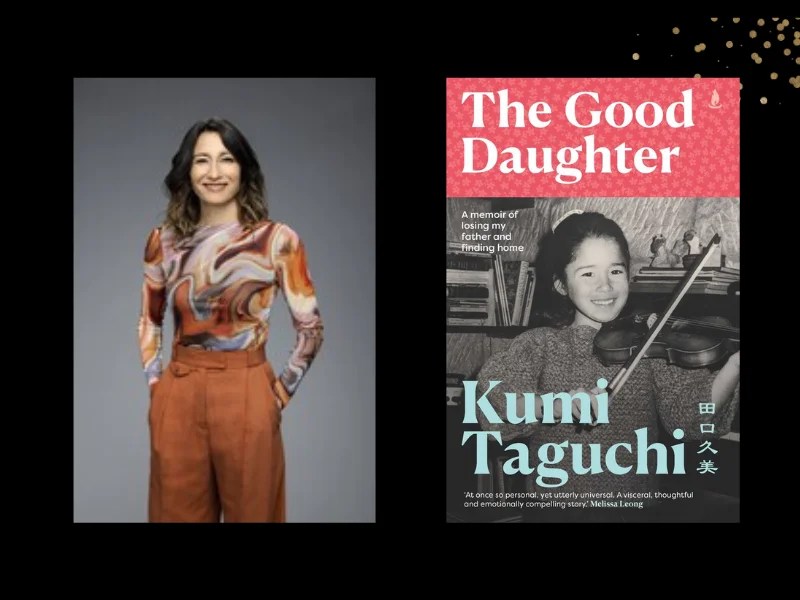Journalist and TV presenter, Kumi Taguchi, delves into complex questions of relationships and vulnerability in her memoir, The Good Daughter. Born to an Australian mother and Japanese father, Taguchi feels a void when it comes to understanding her Japanese heritage. As she makes career achievements and moves across the world for work, there is a persisting sense of feeling ‘lost’.
This feeling stems, at least in part, from Taguchi’s distant relationship with her father, Akira. After her parents’ divorce, Akira has increasingly felt like a stranger. The father and daughter move between estrangement and contact. It is an idiosyncratic estrangement, a kind that is surely relatable to many but is never spoken about: the drifting apart from someone who majorly informs your identity but is unknowable.
Akira is not obviously abusive; he demonstrably cares for his family. But he also seems unable to partake in a reciprocal relationship with Taguchi. He is taciturn, and miserly. He turns off the car engine when driving downhill and will only boil the kettle once a day, keeping the warm water in a thermos to use later. Taguchi, at times, has thought of him as a ‘hopeless father’, ‘never around’ post-divorce. And for a while, Taguchi can’t see the point in bridging the divide, saying, ‘I didn’t need him’.
The Good Daughter is told in a fragmentary, non-linear manner, which is a solid choice for the pastiche of emotions and experiences Taguchi depicts herself coming to terms with what makes a person a person. There are short profiles of people she has interviewed – stories she has heard – alongside stories she has lived. There is an implicit understanding that the narratives around us shape us as much as our own narratives of our lives.
Alongside the central thread of the father-daughter relationship, Taguchi details experiences of racism – particularly at school and in the workplace. She details her travels to Japan, and decisive moments. It is a psychological study of life story. For example, when Taguchi was born, she was placed alone in a humidicrib for an extended period of time. This makes her wonder whether she was born to be separate from others. Some of Taguchi’s journey involves moments of challenging herself to be open to others.
Another key moment shortens the distance between her and her father. Although Akira was also a professional journalist, Taguchi feels they have very little in common. But then, on a rare visit to his house, she sees that he has the same computer desktop background as her, of the Horsehead Nebula. This leads Taguchi to form a closer, if not intimate, relationship with her father in the short time before his death.
For all the detail of coming to emotional honesty, there are times when the memoir can feel frustratingly vague. Taguchi describes talking to others about life problems and the difficulties of opening up to them, but she doesn’t tend to detail specifically what those problems are. The wider point of choosing to be vulnerable is well-made, but the prose would be more vivid – and even instructive – if she depicted how those conversations went and the nature of what she painstakingly overcame.
This is a difficult critique to make, as readers are not owed anything more than the author is willing to give, but it does feel like a pity. The book is at its most captivating when the specifics – of interviewees’ plights, of Akira’s energy usage, of what happens to a body when it is cremated – are portrayed.
Read: Book review: Wait Here, Lucy Nelson
The Good Daughter is a fragmentary, poignant journey of asking hard questions about who you are and how that identity connects with other people, places and stories.
The Good Daughter: A memoir of losing my father and finding home, Kumi Taguchi
Publisher: Scribner (Simon & Schuster)
ISBN: 9781925750799
Format: Paperback
Pages: 304pp
Release date: 30 April 2025
RRP: $34.99






